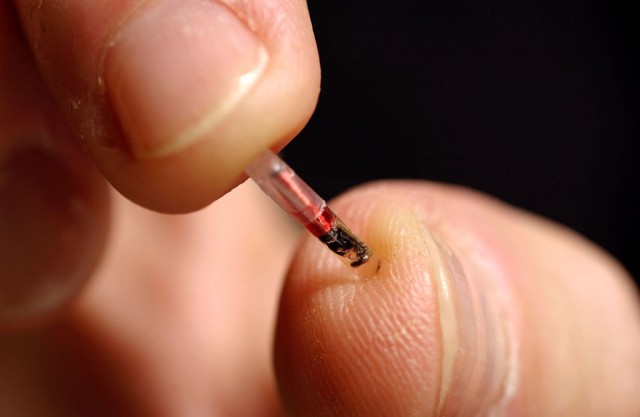A microchip implant Covid-19 vaccine tracker, the size of a grain of rice costing $100 is being promoted by Epicenter, a Swedish Firm.
The South China Morning Post posted a video showing a microchip implant being promoted. In the description of the video posted on Twitter, it reads: “Beep boop beep: Your vaccination record has been validated.”
In the video, a person extends out his arm and scans it with his smartphone. As the video plays, it also includes an on-screen message saying: “imagine showing your COVID-19 passport with just a flash of your arm.”
After scanning the microchip implant in the arm, a link is said to automatically pop up.
Once the link is tapped, the smartphone screen will be redirected to the PDF document that has the full information of the injected vaccine.
The vaccination status of a person is confirmed through this process.
The video states that the microchip implant utilizes a commonly used technology named “near-field communication” (NFC) to send data to any compatible devices.
Epicenter’s Chief Disruption Officer Hannes Sjöblad said in the video that implants are adaptable technology that can be used for a variety of reasons.
“Having a COVID passport constantly accessible on your implant is quite useful right now,” Sjöblad said according to ITech Post.
Read More: $4,500 Stimulus Check Available For Eligible Families, Here’s How To Get Your Share
The COVID-19 vaccine tracker implants may be placed beneath a person’s skin, either under the arm or between the pointer finger and thumb.
The implantation surgery may be done for as low as $100.
“The human body is the next big platform. We are updating our bodies with technology on a large scale already with wearables. But all wearables we wear today will be implantable in our bodies in five to 10 years,” Sjöblad said in a Tech 2025 Webinar.
The microchip implants aim to eliminate the need for key fobs, identity cards, and business cards to be carried everywhere.
With that being stated, people will be able to save data on their chips, such as airport passports and medical information.

